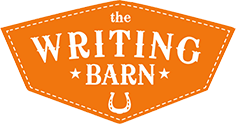by Jenna Jaco
K.A. Holt’s Rhyme Schemer does a remarkably good job of balancing angst and artistry. We meet Kevin, a young boy with a very established (if not positive) reputation, a healthy dose of individualism, and a ton of stuff to say. He’s the “tough guy” who runs into a crisis upon realizing that he–brace yourself–loves creating poetry.
It seems fitting, then, that a story about Kevin’s journey is told entirely in verse. At times, the tension within line breaks gives the reader insight into Kevin’s multiple struggles; at others, it’s a wonderful comedic vehicle for Kevin’s one-liners and terse sarcasm. Verse novels tend to work best when the medium informs the story and vice versa, and such is the case with Holt’s book. Rhyme Schemer simply could not exist as a traditional prose novel–it would lose its punchiness, its voice, and the meat of its action.
Plus, in addition to Kevin’s poems about his poems, we even get to see some of the marked-up texts that Kevin uses as artistic fodder, crossing out words, circling others, and adding his own graphics to pages of existing text. Photocopies of ripped-out, marked-up book-page-poems are sprinkled throughout the book, letting the reader see the gritty fruits of Kevin’s creative labors from their inception. This adds an extra, interesting layer to the story, and perhaps even helps make an all-verse novel a little more digestible for readers new to the format.

Another of the book’s many virtues is its wide appeal. For verse novels, this can be elusive. Several of the YA verse novels I’ve seen are marketed explicitly and exclusively at girls. Rhyme Schemer could not be more different. The cover does not show a female face on it staring off into the horizon. No pastel color scheme or any cursive script. The protagonist’s gender isn’t even obvious at the beginning of the story. This allows all the narrative weight to fall on Kevin’s creative and personal exploration, and the inclusiveness is a breath of fresh air.
Over the course of the novel, Kevin comes to realizations about life, conflict, art, and himself. I know that sounds like a tall order, especially in a pretty skinny verse novel. But Holt paces these transformations perfectly throughout the story, usually with a great degree of subtlety that trusts the reader to let Kevin’s words sink in and reveal the inner goings-on of the character who writes them. Also a plus: Kevin never loses his hilarious, semi-snarky way of interpreting his world.
Overall, Rhyme Schemer is a funny, innovative narrative about artistic expression and self-discovery. It’ll likely prompt many of its readers to do some “scheming” of their own with their own creative endeavors.
Rhyme Schemer is set to release Oct. 14, 2014. Check it out!
